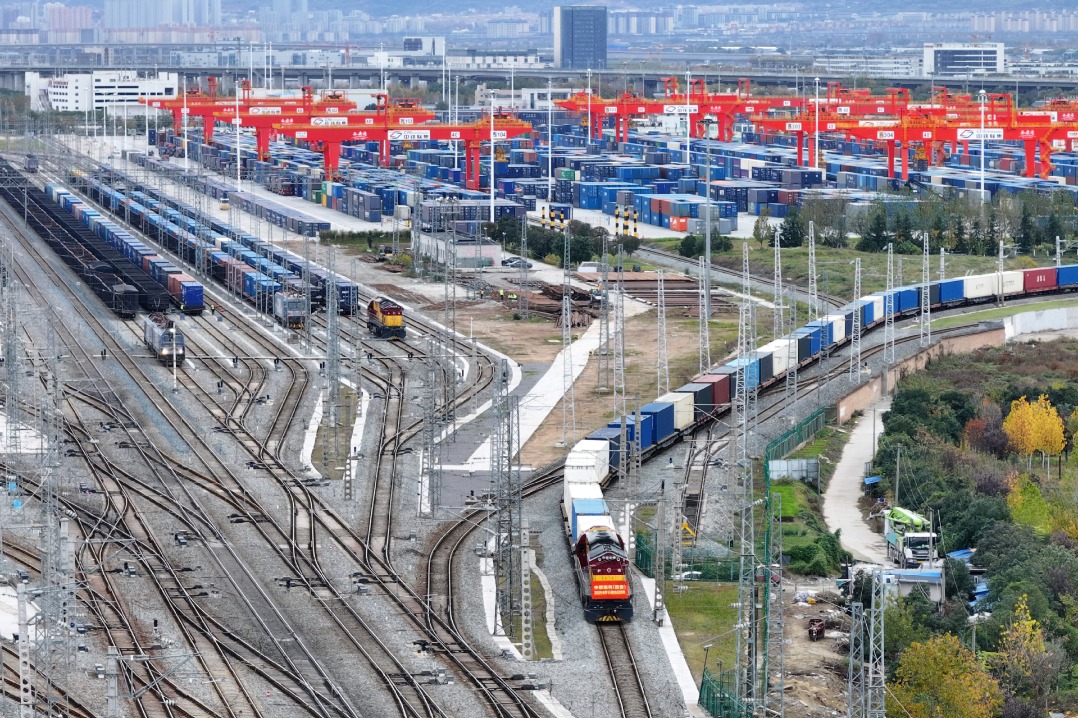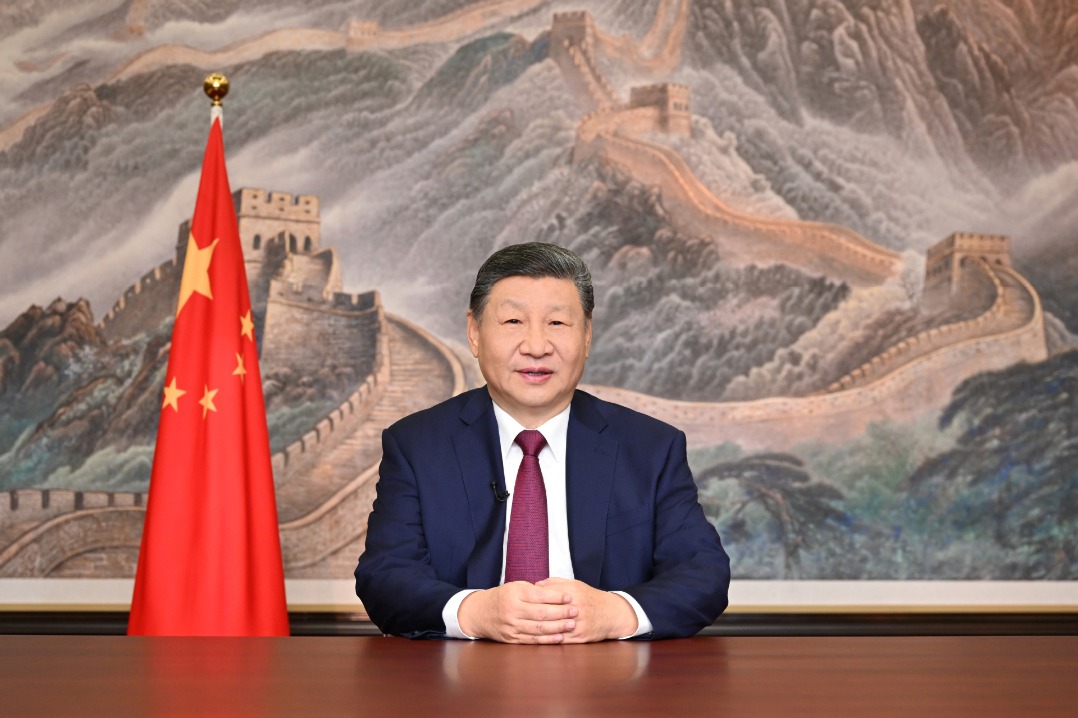Chinese Francophile

| Ya Ding says he tries to give French people a better picture of contemporary China. Provided to China Daily |
Writer keen to further cultural understanding between china and his adopted home
Ya Ding is a man of many titles, but all of them are connected with one country - France.
As one of the few well-known Chinese writers in France and president of the Association for the Development of China-France Exchanges, the 57-year-old spends much of his time promoting cultural and business exchanges between the two countries.
"French people are puzzled by how much China has achieved economically in just 30 years," Ya says. "They have a curiosity and urge to better understand China rather than just its economic strength."
However, cultural understanding between France and China is imbalanced, he says, with Chinese peoples' knowledge of France outstripping knowledge the other way.
A number of French literary classics have been translated into Chinese in recent decades, he says, including works by Victor Hugo and Romain Rolland, and this has given Chinese readers a better understanding of modern France. By contrast, French peoples' knowledge of China is usually restricted to traditional culture.
"I am looking to give French people a better picture of contemporary China and provide those who are keen to learn with various aspects of China from fresh perspectives, so they can know more about the world's second-largest economy".
Ya has long backed up his words with work. He began his career as a translator of French literature and in 1985 was awarded a young translator prize and 50,000 francs ($10,700) by the French government for his Chinese translation of French philosopher and novelist Jean-Paul Sartre's masterpiece L'Age de Raison. He went to France to receive the award and has lived there since.
Ya has also been a prolific writer in French about China, completing seven books on his homeland to date. The first of these, Le Sorgho Rouge, is autobiographical, and provides bitter observations on the "cultural revolution" (1966-76), as well as examining Ya's relationship with his father.
The book was an instant hit in France, selling 500,000 copies as soon as it was published, to become the country's best-seller in 1987. It also won the writer eight French literary awards, including the Prix Cazes and the Prix de L'Asie, and was shortlisted for the Prix Goncourt, one of France's most important literary prizes.
Since then it has been translated into more than a dozen languages including German, English, Japanese and Chinese.
The book's success has given Ya an understanding of the power of literature to improve a country's image, which he believes is stronger than diplomatic channels.
"Literary works more vividly present the ecological structure of Chinese society and help others better understand the great social changes that have taken place over the past 30 years in the country," he says.
"People in Europe are keen on literature from China, but because of the lack of dissemination channels as well as a shortage of proficient translators, many of the best-selling books in China are relatively unknown in Europe," Ya says, adding that good translators are vital to take Chinese literary works to overseas markets.
In addition to writing, Ya has also worked as an event planner, film maker and environmental advocate, always with a focus on Sino-French cultural exchanges.
He directed the opening ceremony of the 2005 China-France Culture Year in Paris, for which he was widely praised.
And as the head of the Association for the Development of China-France Exchanges, he has also been committed to training Chinese filmmakers in an international perspective through the promotion of exchanges with French directors.
In 2005, the Association for the Development of China-France Exchanges and Beijing Normal University co-founded the Ecole Francaise du Cinema de Pekin (French Film Academy), with Ya as its president.
"China has a lot of valuable cultural resources and we can talk about good movies, but few Chinese filmmakers are capable of using international film language to tell stories to the world. This is the same hurdle we encounter introducing our great literary works to overseas markets," he says.
"The purpose of founding the film school is to share France's filmmaking experience with young Chinese people who are interested in film production, helping them better understand international film language and techniques, and most importantly training them to make movies with an international perspective."
According to Ya, the academy enrolls 80 to 100 Chinese students each year for three years of intensive training, with the first year in China and the second two in France.
"China's film education instills filmmaking knowledge in students through learning film criticism and watching other people's performances, which is relatively rigid compared with France, which emphasizes stimulating students' imagination and creativity," he says. "But we all know cultivating those qualities is vital to the birth of a good film, so Chinese film schools should catch up in this regard.
"We aim to bring educational methods that are more market-oriented from France to China."
Ya says apart from learning film-making skills, students also take French lessons in order to better communicate with their French teachers.
He says most graduates will go back to China to seek employment and some former students have already found a place in China's competitive film market.
"I believe the prospects of the French Film Academy in China are very promising because the Chinese pay a lot of attention to education."
"I think international schools and educational institutions have brought advanced education concepts to China and forced schools in China to modify their teaching methods, which benefits China's education system."
To honor Ya's contribution to cultural and business exchanges between France and China, then French prime minister Nicolas Sarkozy made Ya a Chevalier de la Legion d'Honneur in 2010. Previous Chinese recipients of the honor include former Kuomintang leader Chiang Kai-shek and writer Ba Jin.
Ya says with China's rapid economic development, the desire of people from both countries to deepen exchanges is becoming increasingly strong.
"I have noticed that in the past international exchanges occurred mostly in Chinese mega-cities like Beijing and Shanghai. But things are different today; exchanges between smaller Chinese cities and Western countries are becoming increasingly frequent."
"This gives us more opportunities to promote China to the outside world."
liulu@chinadaily.com.cn
(China Daily Africa Weekly 07/12/2013 page28)
Today's Top News
- Manufacturing rebounds in December
- PLA wraps up military drills around Taiwan
- Ties with Russia expected to bear fruits
- Confidence, resolve mark China's New Year outlook
- Xi urges solid work for more progress
- Confidence, resolve mark China's New Year outlook: China Daily editorial































